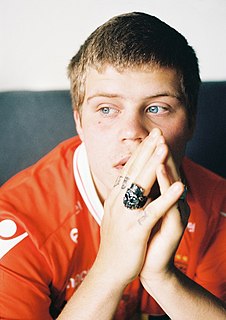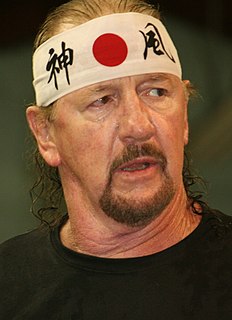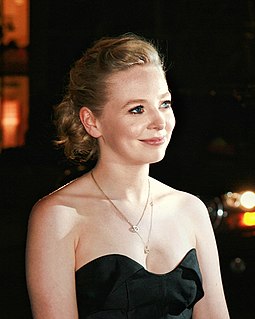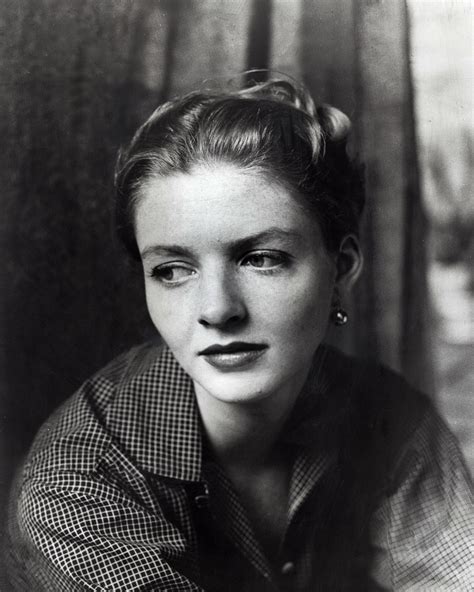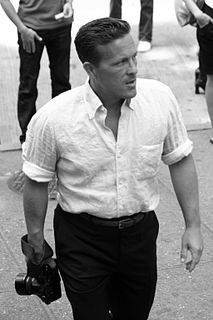A Quote by Yung Lean
We can be a little less organized in Stockholm; it's not really that serious. And on the White Marble tour in Europe - I don't think there's as much hardcore fans as in the U.S. In the U.S., it's like this whole celebrity culture.
Related Quotes
I think there ought to be some serious discussion by smart people, really smart people, about whether or not proliferation of things like The Smoking Gun and TMZ and YouTube and the whole celebrity culture is healthy. We've switched from a culture that was interested in manufacturing, economics, politics - trying to play a serious part in the world - to a culture that's really entertainment-based. I mean, I know people who can tell you who won the last four seasons on American Idol and they don't know who their [bleeping] Representatives are.
Growing up I did commercials and things like that, but nothing serious. As I got older, my family is really hardcore into academics. They weren't wanting to necessarily support an acting career; it's a really fickle business, and it can be difficult and unstable. They were rooting for education and the whole nine yards.
I think in my case winning fans came as a result of winning tournaments. Certainly, I didn't have too many supporters when I came on Tour. I didn't look like an athlete, I was overweight, had a crew cut, baggy clothes and on top of that I didn't smile much. I was very serious about my game, literally and figuratively the heavy.
It really really sunk into me when I went to Europe and they take rap so much more serious than we do here. That was the first time I ever heard rap considered folk music. And sometimes somebody will make you understand like, "Hey, what you doin' is serious, don't play it lightly 'cause it's changin' my life."
I did, I was in Europe a lot. I would say, mid 20s to late 30s. Less so in the last ten or twelve years. Based on some political stuff and other things, I think I'm not the only musician, the only American jazz musician that's not going to Europe quite as much. I think we're seen a little differently in the world, unfortunately, than we were pre-Iraq invasion and things like that.
I like a lot of hardcore, but it's just a genre about which I don't have much to say. It's kind of a thing where, unless you're active in the hardcore community, what could you have to say of value about it? It resists criticism because it's not just a style but an entrance into several different worlds of ideas- political, philosophical, societal. The music is really only part of the whole scene. In that sense, the music doesn't change much because it shouldn't: It needs to be there as a signal that you're entering into a certain discursive mode, maybe.
It's tough though because of the whole part about getting sponsors and people out to watch women's cycling. I think the only way that women can really work it is that we have to work our way more into these big grand tours that the men have like the Tour de Georgia, Tour of Utah, and Tour of California.
I think in Japan I think there is a lot of style and a lot of subcultures, but it will be interesting to see how much of them... how much of the people wearing those clothes are really expressing something about who they are or who they want to be and it will be very interesting to see, especially once you get there, once you get to a certain city like in Stockholm you really get to know the people a little bit and what they're saying through their clothes. It's more... To me I think it's much more interesting than just the clothes they're wearing or the length of the skirt.
We focus on that really repulsive minority of racists. But then there's a continuum that goes all the way to, you know, what used to be called the white backlash or to, you know, the feelings of some white people that they're losing out and that the jobs and power and sort of the culture is drifting away from them and toward people who don't look like them, who don't - who they don't know very well. And that's not necessarily - I don't equate that with the hardcore ideological hatred of self-identified racists.
You know, it's not my film [Valerian], it's really their film. It's very strange. And maybe because it's more when you comes to the Marvel films it's way much more organized and plan, you know, they planned. Okay, we have Thor here, we have this and then we do The Avengers, and then we group. You know, it's much more organized. So maybe there is a little less freedom at the end for the creative people. Where I did the entire opposite. I let them help me, you know. So that's also why maybe they were so involved.
